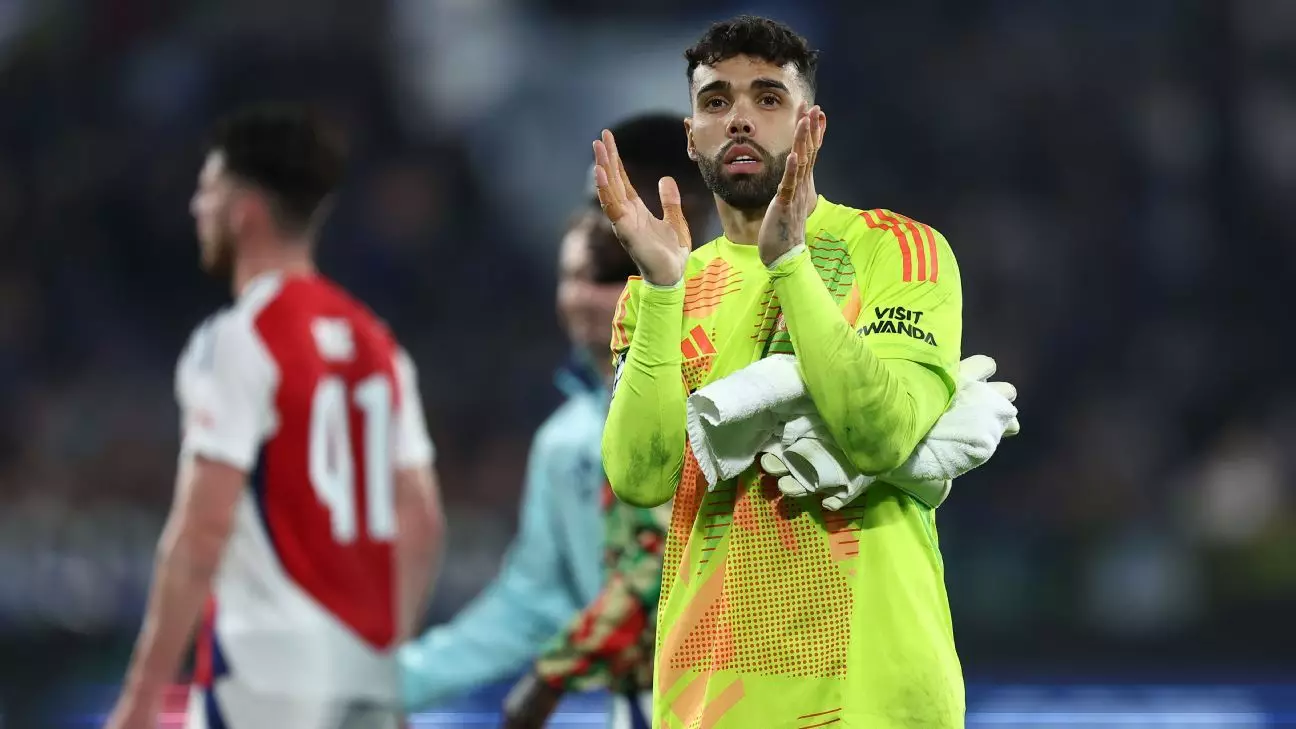In their opening match of the UEFA Champions League, Arsenal faced Atalanta at the Gewiss Stadium in Bergamo, resulting in a 0-0 draw. While a point in the group stage may be seen as a positive takeaway, the match itself raised several questions about Arsenal’s attacking capabilities and overall game plan. Throughout the encounter, both teams displayed a cautious approach, leading to a lack of goal-scoring opportunities and leaving fans craving for more excitement.
From the referee’s first whistle, both Arsenal and Atalanta appeared to adopt a strategy focused on maintaining possession rather than taking risks in attack. The Gunners struggled to transition the ball effectively, failing to connect with their forwards. Bukayo Saka provided Arsenal’s clearest chance in the first half with a well-placed free-kick that forced the Atalanta goalkeeper into action. However, beyond this effort, the visitors lacked creativity, with Gabriel Martinelli’s strike going unthreateningly over the bar.
Atalanta, on the other hand, showed similar restraint. Although they had moments of fluidity, particularly on the wings, their final ball often fell short, leading to a series of turnovers. The first half concluded with neither side making a substantial impact, reflecting a game plan leaning towards cautiousness instead of aggressive play.
Emerging from halftime, it was evident that both teams understood the ramifications of the match. Early on, a critical moment occurred when Thomas Partey conceded a penalty, placing Arsenal under pressure. Yet, David Raya stood tall, executing an impressive double save against Mateo Retegui that preserved the draw and shifted momentum back to the Gunners. This incident highlighted the importance of a strong goalkeeper in such tightly contested matches.
Arsenal appeared to gain confidence post-penalty save. Raheem Sterling, who entered as a substitute, made an immediate impact by link-up play, creating a prime chance for Martinelli. Unfortunately, the young forward was unable to capitalize, firing wide with the kind of chance that can define a match. This lack of clinical finishing was a recurring issue for Arsenal throughout the game.
Despite the urgency that might have been expected in a Champions League encounter, it quickly became clear that both teams were content with a share of the spoils, particularly Arsenal. The Gunners leaned heavily on their backline, which performed admirably to secure a clean sheet, but the lack of attacking fluency was palpable.
Tactical Overview: Arsenal’s Approaches and Adjustments
Analyzing Mikel Arteta’s tactical approach reveals a team that values structure over spontaneity, particularly in challenging away matches. His defensive organization was commendable, with players like William Saliba and Gabriel offering strong performances. The midfield, led by Declan Rice, was instrumental in disrupting Atalanta’s flow. However, while defensive solidity is crucial, the Gunners must address their attacking shortcomings.
Arteta’s substitutions were timely; he introduced Sterling and Trossard in hopes of injecting a burst of creativity and speed into the attack. However, the lack of impactful play in the final third illustrates a pressing need for more incisive passing and movement. With players like Saka and Martinelli exhibiting flashes of brilliance, the expectation remains for the team to transform these moments into tangible results.
A goalless draw in the group stage may not seem detrimental at first glance, especially away against a formidable opponent like Atalanta. However, the narrative extends beyond securing a point; it’s about how Arsenal builds upon this experience. With the attacking squad they possess, it’s imperative that Arteta instills a more dynamic approach moving forward.
While Arsenal secured a clean sheet and demonstrated tactical discipline, the imbalance between defense and attack must be rectified. The Gunners’ supporters will hope for a more polished performance in their forthcoming fixtures, with the expectation that players can translate their individual talents into cohesive team play. As Arsenal progresses through this Champions League campaign, the upcoming matches will serve as litmus tests for their ambitions on the continental stage.

